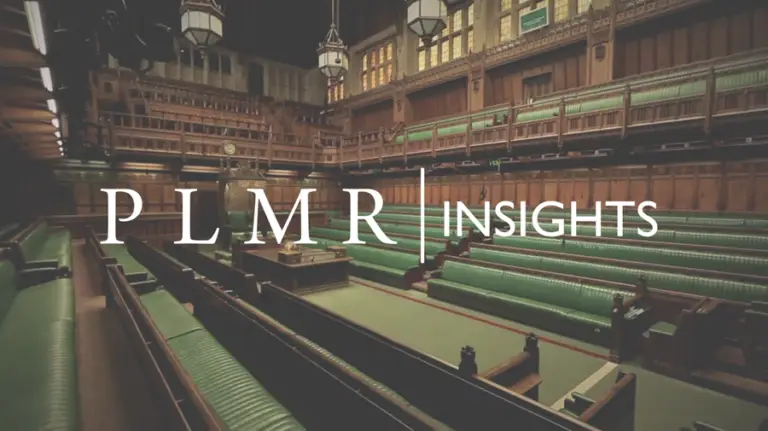This morning, the energy regulator, Ofgem lifted the maximum rate that suppliers can charge for an average dual-fuel energy tariff by £693, to reflect the fourfold increase in energy market prices over the last year of which 80% comes from wholesale energy prices. This is the second major increase in energy bills in six months, and the largest on record, and is expected to drive millions of households into fuel poverty for the first time.
In response, Rishi Sunak announced a £9b.1bn package – an ‘Energy Bills Rebate’ – to protect consumers. This follows significant pressure from industry, Labour and those within the Conservative party concerned about the impact of the cost-of-living crisis across the UK.
The package provides a two-pronged approach, including:
Spreading the cost of the price increase over time, from October – the Energy Bills Rebate will provide around 28 million households with an upfront discount on their bills worth £200. Energy suppliers will apply the discount to domestic electricity customers from October, with the Government meeting the costs. The discount will then be automatically re-paid via bills in equal £40 instalments over the next five years. This will begin from 2023, when the Government expects global wholesale gas prices to come down. It means while households will still pay for the rise, this will be spread over a five-year period.
Lower-income families to see further discounts, from April – Households in England, which are in council tax bands A-D, will also receive a £150 rebate. The rebate to bills will be made directly by local authorities from April. This will not need to be repaid. This one-off payment will benefit around 80 per cent of all homes in England. On top of this discount, discretionary funding of £144 million will also be provided to support vulnerable people and individuals on low incomes that do not pay Council Tax, or that pay Council Tax for properties in Bands E-H. You can find out what your home band is in here.
In addition, the Chancellor confirmed plans to go ahead with existing proposals to expand eligibility for the Warm Home Discount by almost a third so that three million vulnerable households will now benefit, as well as the planned £10 uplift to £150 from October.
Through this approach the Government has avoided a windfall tax on industry and a cut to VAT on bills – two polices Labour and others have called for but that many in the energy industry feared. The Government argues that this approach will provide a faster and fairer response to the crisis and “is £1 billion more generous and more targeted towards lower-income families”. In his speech, the Chancellor also argued that a windfall tax on oil and gas companies would deter investment and risk job creation, particularly in the North Sea, which he is keen to avoid.
For the full speech click here.
We take a look at the Good, the Bad, and the Ugly of this news.
The good
Support will be provided for households who most need it – The plans mean that the majority of UK households will benefit while also providing targeting support lower-income households.
The green levy won’t be scrapped – The Energy Company Obligation (ECO) – also known as the ‘green levy’ – which is placed on energy bills to fund investment into improved energy efficiency, insulation, and new boilers – has not been cut. This was something that had been reported to be a consideration for Government and which many were against.
The bad
Buy now and pay later is a gamble – In response to the policy, Labour’s Meg Hillier brands Rishi Sunak “the Klarna chancellor” – saying the government’s support plan for rising energy bills constitutes a “buy now, pay later” policy. The success of this policy will come down to what happens to the price of gas over the course of the next four years – the Government is gambling on wholesale gas prices coming down.
No long-term solution to the crisis – Hours before the Chancellor spoke, the BEIS Committee released a report claiming the Government ‘lacks strategic direction’ for decarbonising heating from homes and businesses. Over 85% of homes in Britain are heated with a gas boiler, and around 40% of our electricity comes from gas. Notably absent from the Chancellor’s announcement was any new strategies or funding for investing more in renewable energy or on making homes more energy efficient over the long-term.
The ugly
Energy prices are going to rise – Households will face a record energy bill increase of 54% from April after the regulator lifted the cap on default tariffs to £1,971. This means people will still face huge rises in energy bills even with the combination of state backed loans and council tax rebates. The average bill is expected to go up by around £350 for most people after interventions, although rise will be less for poorer household. This will continue to cause challenges for the Government.
The cost-of-living crisis will continue to test UK Government’s Net Zero commitments – This is shown by the recent rise of the Net Zero Scrutiny Group, a group of around 20 MPs concerned about the costs of reaching net zero. Led by backbencher Steve Baker – who has called for a ‘Referendum’ on Net Zero as a result of rising energy prices – questions over the cost of net zero will continue to put pressure on the Government’s agenda.




